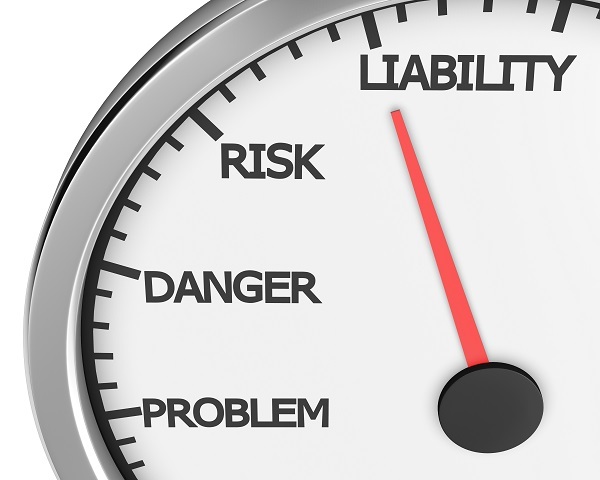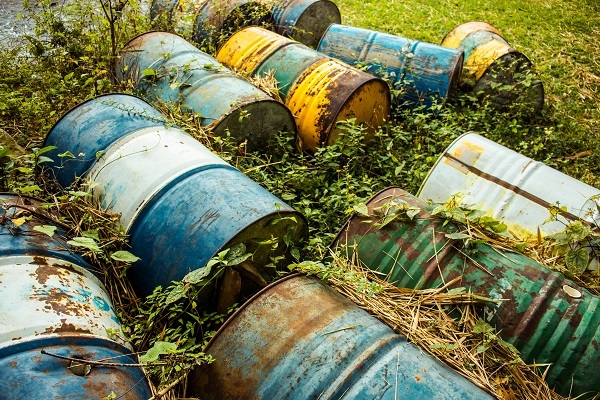The United States Comprehensive Environmental Response, Compensation and Liability Act (“CERCLA”) was enacted in 1980 and imposed strict liability on owners and operators for costs associated with any required remediation of contaminated property. CERCLA was subsequently amended in 1986 and 2002 to include specified landowner liability protections, which require completion of an All-Appropriate Inquiries (“AAI”) investigation prior to acquisition of a subject property and impose post-acquisition obligations.
This discussion provides a high-level overview of the available landowner liability protections and highlights some recent changes to AAI requirements. It is not intended to be a comprehensive summary of CERCLA and associated liability protections, which include other requirements that should be reviewed by environmental professionals and legal counsel.
Three Liability Protections

The United States Environmental Protection Agency (“USEPA”) specifies requirements for AAI investigations in its AAI rule (40 CFR Part 312 – Innocent Landowners, Standards for Conducting All Appropriate Inquiries). The following industry standards are referenced in 40 CFR 312.11 and may be used to comply with the AAI requirements set forth in 40 CFR 312.23 through 312.31:
- The procedures of ASTM International Standard E2247-16 entitled “Standard Practice for Environmental Site Assessments: Phase I Environmental Site Assessment Process for Forestland or Rural Property.”
- The procedures of ASTM International Standard E1527-13 entitled “Standard Practice for Environmental Site Assessments: Phase I Environmental Site Assessment Process.”

How to Make All Appropriate Inquiries
New Requirements for Phase I ESAs
On November 1, 2021, ASTM submitted a revised ASTM E1527-21 Standard to the USEPA for review of compliance with the AAI rule. USEPA approval may take up to one year and environmental consultants may continue using and citing the ASTM E1527-13 Standard until the USEPA approves the new ASTM E1527-21 Standard. However, in Lummus Consultants’ opinion it would be prudent for environmental consultants to use the existing ASTM E1527-13 Standard and indicate that the Phase I ESA also incorporates procedures as prescribed in the new ASTM E1527-21 Standard.
The revised ASTM E1527-21 Standard includes several changes, a few of which are generally described below:

- Requirements are specified for more historical research of site and adjacent property records and uses, which may be in addition to what would be required under the ASTM E1527-13 Standard
- Clarifications and revisions are provided for the definition of RECs
- Restrictions on shelf life of Phase I ESAs based on the earliest date of completion of the five components of the Phase I ESA, rather than the date of the Phase I ESA report
- 180 days for original report
- One year for updated reports
- Expanded list of chemicals and compounds of concern
- Additional guidance on significance of data gaps and property use limitations
The 180-day report shelf life or one-year updated report shelf life-time periods are to begin with the date of completion of the first of the following five components: interviews, searches for recorded environmental cleanup liens, review of government records, site reconnaissance of the subject property and the Environmental Professional [EP] Declaration.
Thousands of chemicals and compounds from pharmaceutical, manufacturing, and personal care products that are detected at low levels in the water cycle that may impact our environment, aquatic organisms, or human health are currently not classified as hazardous by CERCLA and accordingly have not been required to be evaluated in Phase I ESAs. These emerging contaminants frequently include, but are not limited to, per- and polyfluoroalkyl substances (“PFAS”), perfluorooctanoic acid (“PFOA”), perfluorooctanesulfonic acid (“PFOS”), perfluorobutane sulfuric acid (“PFBS”), GenX chemicals, 1,2,3-trichloropropane (1,2,3-TCP), 1,4-dioxane, microplastics, and other endocrine disruptors. PFAS and other emerging contaminants are added to the list of “non-scope issues” that a user may want to evaluate as a business risk, as is commonly done with asbestos containing material, lead based paint, lead in drinking water, radon, and mold. This can be particularly important for those Phase I ESAs that are conducted in 17 states that already have adopted regulatory standards for such substances, states with guidelines, or in states where the adoption of regulatory standards and guidelines is anticipated soon. Note also that USEPA initiated a rulemaking in October 2021 to designate PFAS, PFOS, PFBS, and Gen X chemicals as hazardous waste under CERCLA and the presence of these contaminants will be required to be assessed in a Phase I ESA after the rulemaking process is completed.
Use of Phase I ESAs by Lenders
Lummus Consultants frequently reviews Phase I ESAs as a lender requirement in support of financing of a project. The Lender Liability Act of 1996 clarified that lenders cannot be held liable as “owners” under CERCLA if they foreclose on property, even if they take steps to preserve or protect the property prior to selling or disposing of it. The Lender Liability Act likewise clarified what steps a lender may take to protect its collateral without being deemed to have “participated in management” to such an extent that the lender may be deemed an “owner or operator” of the site who is liable for response costs.
Note that the protections of the Lender Liability Act apply whether a Phase I ESA is performed. Nevertheless, lenders require completion of a Phase I ESA in part because it may identify problems that may affect the collateral value of a project or the borrower’s ability to repay the loan, which is a focus of our review on behalf of lenders. The timing of completing the Phase I ESA should also be confirmed to meet the applicable existing or new requirements for shelf life if property acquisition occurred prior to financial closing.
The Devil is in the Details
A recent case in Indiana, involving a party seeking to avoid liability for the $1.7 million cost of remediation of a groundwater plume containing chlorinated solvents from its property that presented a risk of vapor intrusion to neighboring residences, illustrates the importance of an adequate Phase I ESA. In September 2021, the US Court of Appeals for the Seventh Circuit affirmed the District Court’s finding that a party was not entitled to assert the BFPP defense under CERCLA because the party’s Phase I ESAs did not comply with the AAI (Von Duprin LLC v. Major Holdings, LLC, No. 20-1711 (7th Cir. Sep. 3, 2021)).
The District Court had found that the environmental professional failed to make the required inquiries with the property owner and failed to include the necessary certifications in a Phase I ESA that was otherwise appropriately prepared for one property. In connection with a second property, the court found that the Phase I ESA was appropriately completed within the appropriate timeframe (180 days) prior to the party’s purchase of the property, but the party started a 99-year lease of the same property six years prior to it purchasing the property. Thus, the party became an operator under CERCLA at the start of its lease and had not satisfied the AAI rule at that time because the Phase I ESA the party conducted prior to signing the lease was not completed or updated within the 180 days before the start of the lease, as required by the AAI rule.
Be Careful Out There
In conclusion, it is important that an adequate and properly timed Phase I ESA is prepared for property that is to be acquired via purchase, lease, or easement and used on a project, particularly if there are pre-existing contamination issues. All parties to the transaction should work together to ensure that the Phase I ESA meets the applicable AAI criteria and other pre- and post-acquisition requirements specified by CERCLA. As we have done in the past, Lummus Consultants will review these issues as part of the environmental due diligence review for financing or acquisition of power, pipeline, process, and petrochemical projects.
Are you a project developer purchasing or leasing land or are you acquiring an existing project that is located on property that may have pre-existing contamination issues? Are you a lender considering financing a project like that? Then you will want to understand the laws applicable to liability for remediation of site contamination and how your possible liability can be determined or eliminated by preparation of a Phase I Environmental Site Assessment.







